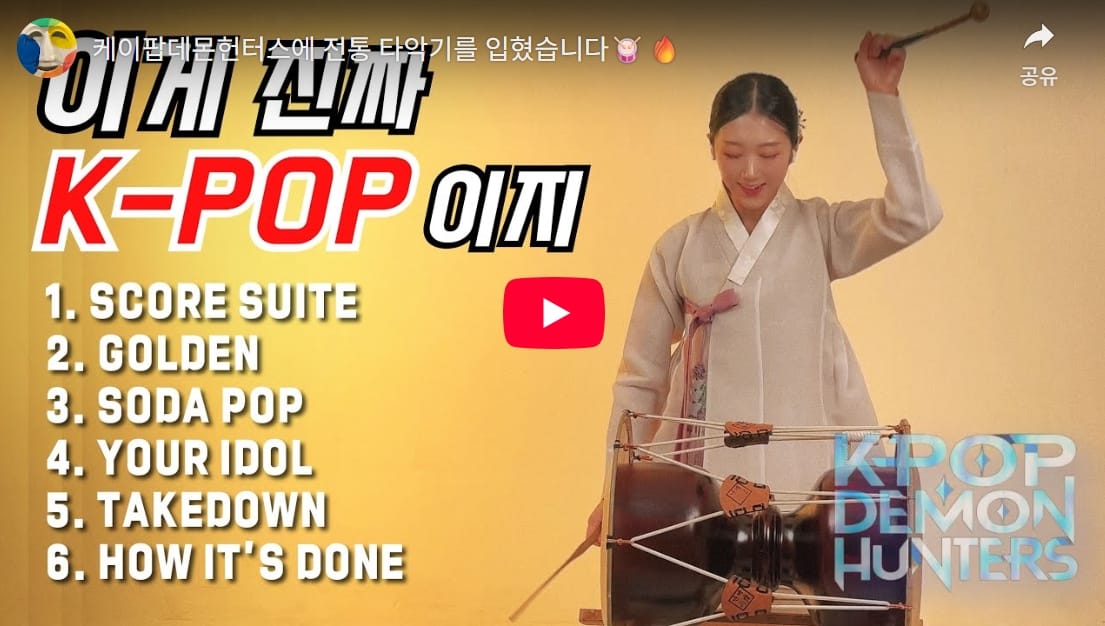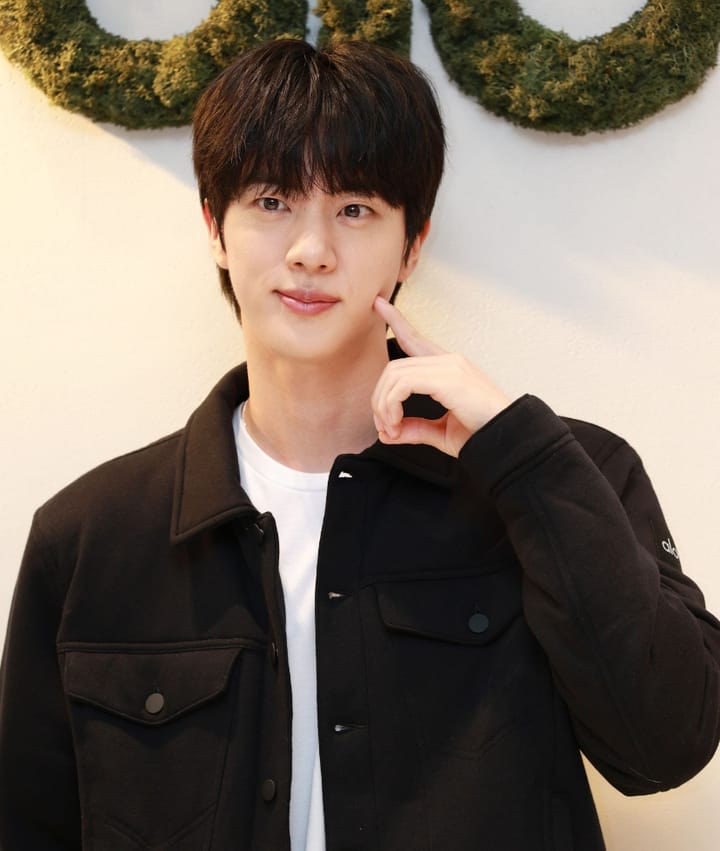When Ancient Rhythms Meet Modern K-pop: Demon Hunters Reimagined with Traditional Korean Instruments

Exploring the spiritual fusion of contemporary beats and ancestral sounds
The Viral Phenomenon
The global K-pop sensation "Demon Hunters" has taken the world by storm, but a remarkable new interpretation is capturing hearts and minds in an unexpected way. A talented musician has created a breathtaking rendition using authentic Korean traditional instruments: Gutjanggu (굿장구), Janggu (장구), and Kkwaenggwari (꽹과리).
Watch the mesmerizing performance: YouTube Link
This isn't just a cover—it's a bridge between worlds, connecting the ancient spiritual traditions of Korea with the contemporary energy of modern pop culture.
The Sacred Instruments of Korea
Gutjanggu (굿장구) - The Ritual Drum
The Gutjanggu is more than just a percussion instrument; it's a sacred vessel used in Korean shamanic rituals (gut). Its deep, resonant tones are believed to:
- Connect the earthly and spiritual realms
- Invoke protective energies
- Cleanse negative forces
In the context of "Demon Hunters," this choice is profoundly symbolic—the very instrument traditionally used to banish evil spirits now accompanies a song about hunting demons.
Janggu (장구) - The Hourglass Drum
The double-headed hourglass drum represents balance and harmony:
- High-pitched sounds from the right side (constructed with thin leather)
- Deep bass tones from the left side (made with thicker hide)
- Perfect metaphor for the balance between light and darkness
Kkwaenggwari (꽹과리) - The Small Gong
This small brass gong cuts through all other sounds with its:
- Piercing, crystalline tone
- Ability to command attention and focus
- Traditional role as a signal for spiritual ceremonies
The Deeper Spiritual Connection
Ancient Wisdom Meets Modern Battles
What makes this musical fusion so powerful is its inherent spiritual authenticity. In Korean shamanistic tradition, these instruments have been used for centuries to:
- Ward off evil spirits and negative energies
- Create sacred space for healing and transformation
- Connect communities through rhythm and sound
- Guide souls through transitions and challenges
The "Demon Hunters" theme suddenly takes on deeper meaning when performed with instruments that have literally been used for spiritual protection throughout Korean history.
Sound as Spiritual Technology
Traditional Korean music operates on the principle that sound itself has power:
- Rhythmic patterns can alter consciousness
- Specific tones can invoke different spiritual qualities
- Collective music-making creates community healing
- Sacred instruments carry the accumulated energy of generations
Cultural Bridge-Building in the Digital Age
Honoring Heritage While Embracing Innovation
This performance represents something beautiful happening in our globalized world:
- Respect for traditional culture without museum-piece mentality
- Creative adaptation that brings ancient wisdom into contemporary relevance
- Cross-cultural appreciation that goes beyond surface-level appropriation
- Spiritual authenticity in an often superficial digital landscape
The Power of Authentic Fusion
Unlike shallow cultural mixing, this rendition works because:
- The artist understands the spiritual significance of the instruments
- The thematic connection between demon hunting and exorcism rituals is genuine
- The musical execution honors both traditions respectfully
- The result creates something new while preserving the essence of both cultures
Lessons for Conscious Living
Finding the Sacred in the Popular
This performance teaches us several profound lessons:
Integration Over Separation: Rather than keeping ancient and modern completely apart, we can find ways to honor both simultaneously.
Authenticity Over Appropriation: When we approach other cultures with genuine respect and understanding, beautiful collaborations become possible.
Spiritual Practice in Daily Life: Sacred traditions don't have to remain locked in formal ceremonies—they can infuse our contemporary experiences with deeper meaning.
The Universal Language of Music: Rhythm and melody transcend cultural boundaries while still carrying specific cultural wisdom.
The Global Awakening Through Music
Beyond Entertainment
What we're witnessing is part of a larger global awakening:
- Ancient wisdom traditions finding new relevance
- Spiritual practices adapting to contemporary life
- Cultural exchange happening at unprecedented levels
- Young people seeking authentic meaning in their entertainment
Music as Medicine
Both K-pop and traditional Korean music serve healing functions:
- K-pop: Provides community, identity, and emotional expression for global youth
- Traditional instruments: Carry specific therapeutic and spiritual properties
- This fusion: Offers both immediate enjoyment and deeper spiritual nourishment
Reflection Questions
For Your Own Practice:
- How can you honor your own cultural heritage while remaining open to new influences?
- What ancient wisdom traditions speak to your soul, and how might you integrate them into your daily life?
- When you consume popular culture, how can you look for deeper spiritual meanings?
- What role does music play in your own spiritual practice?
The Ripple Effect
This single performance represents something much larger than a musical cover. It's a demonstration of how we can:
- Bridge seemingly opposite worlds with creativity and respect
- Find spiritual significance in unexpected places
- Honor traditions while allowing them to evolve
- Create community across cultural boundaries
- Use art as a vehicle for deeper understanding
As this video continues to gain global attention, it reminds us that true creativity often lies not in creating something entirely new, but in finding unexpected connections between existing wisdom traditions.
A Call to Conscious Cultural Exchange
In our interconnected world, we have unprecedented opportunities to learn from each other's traditions. This K-pop and traditional Korean instruments fusion shows us how to do it right:
✨ With respect for the source cultures
✨ With understanding of deeper meanings
✨ With creativity that serves both traditions
✨ With authenticity that rings true
What other beautiful bridges might we build between ancient wisdom and contemporary expression?


